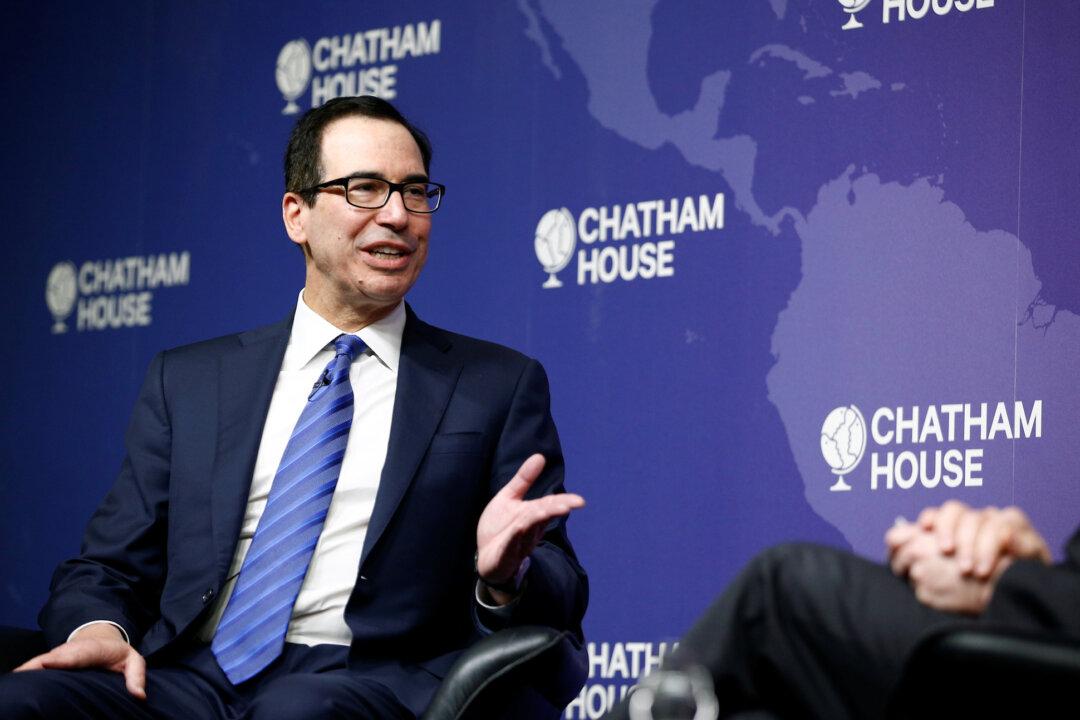U.S. Treasury Secretary Steve Mnuchin expressed optimism that a trade agreement would be signed this year between the United States and Britain, as Brexit throws open the door to a bilateral deal.
“I’m quite optimistic,” Mnuchin said at an event held at the Chatham House think tank in London on Jan. 25. He was responding to a question about the likelihood of the two countries signing a much-anticipated agreement on trade.





